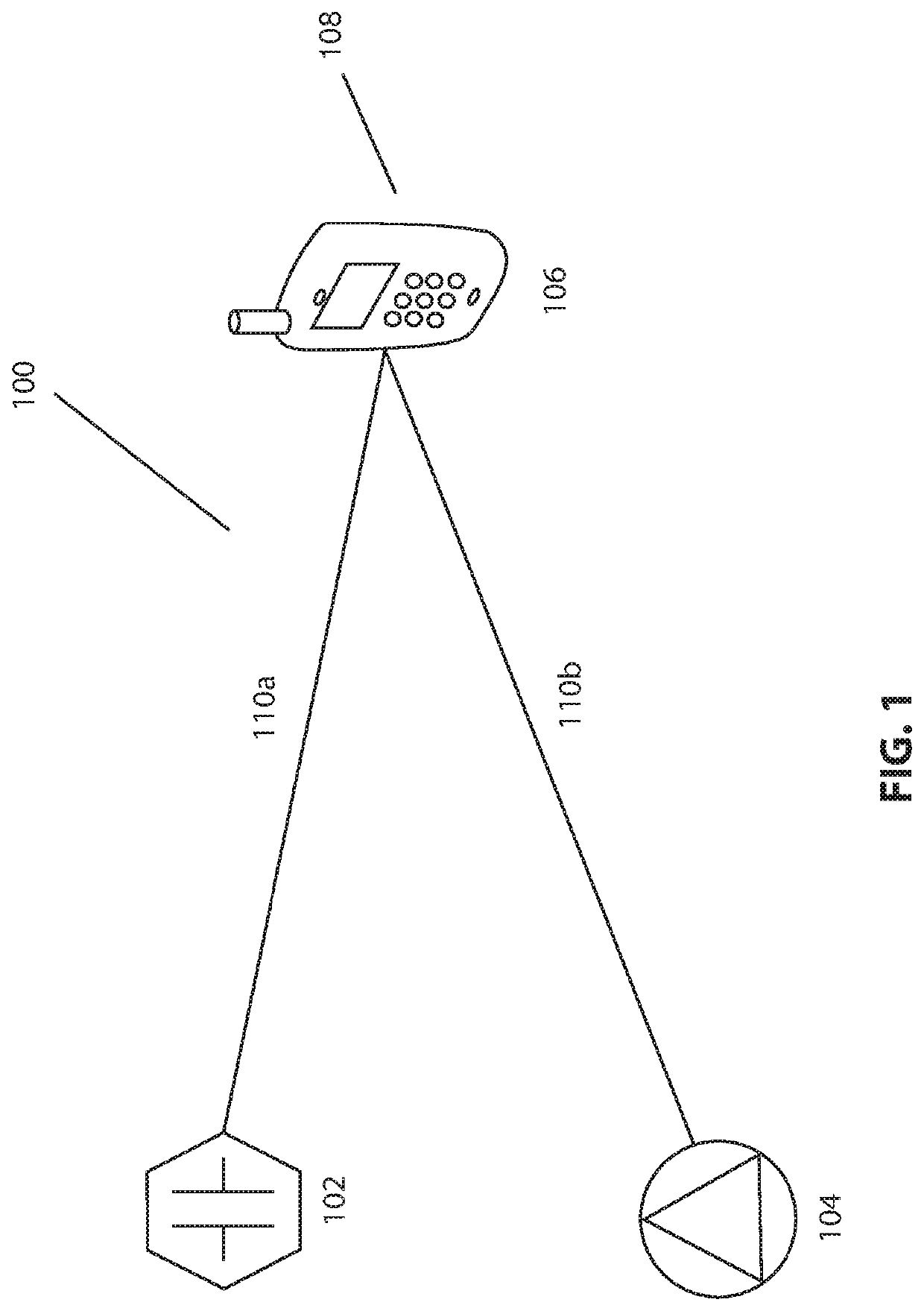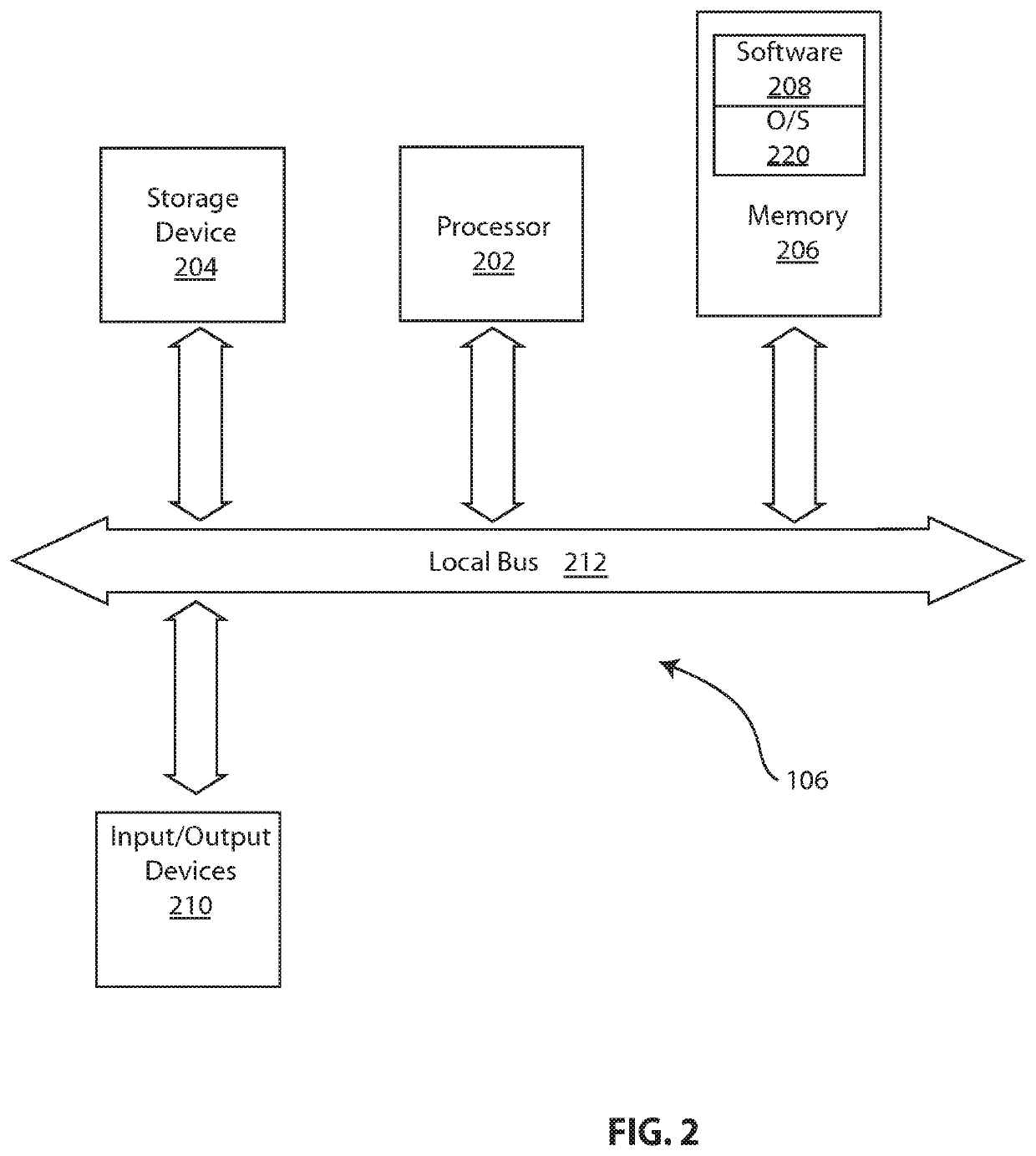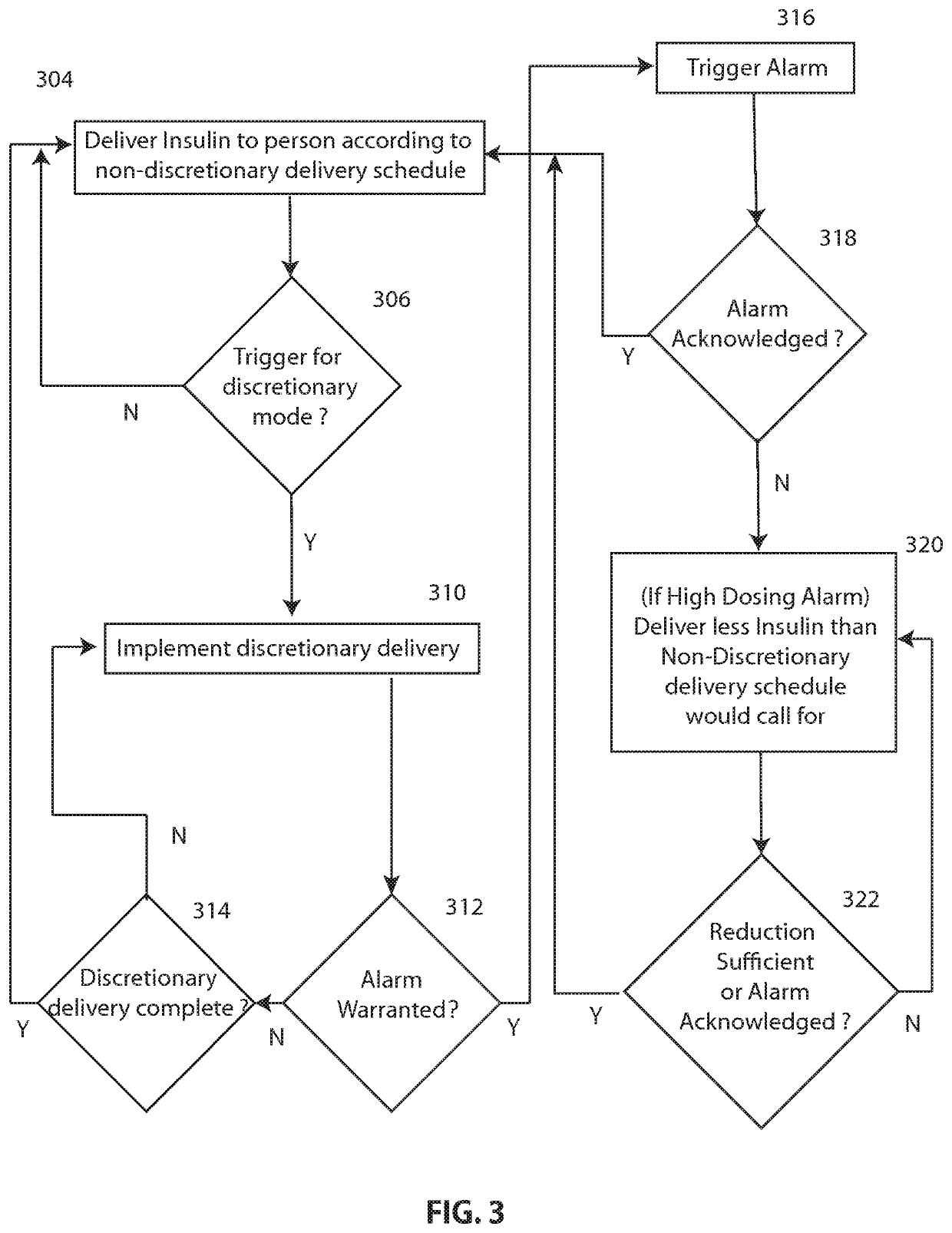Discretionary insulin delivery systems and methods
a discretionary and insulin-delivering technology, applied in the field of discretionary insulin delivery systems and methods, can solve the problems of inability to provide for the proper absorption of sugar and starch, inconvenient frequent injections for patients, and the risk of amputation of extremities, so as to improve insulin delivery and glycemic control, simple, safe and reliable
- Summary
- Abstract
- Description
- Claims
- Application Information
AI Technical Summary
Benefits of technology
Problems solved by technology
Method used
Image
Examples
Embodiment Construction
[0035]FIG. 1 is a schematic view of an exemplary system 100 adapted to implement one or more of the techniques disclosed herein.
[0036]The illustrated system 100 includes a glucose monitoring / measuring device 102, an insulin delivery device such as a pump 104 and a controller 106. The controller 106 has a user interface 108, an internal computer-based processor and internal computer-based memory storage capacity.
[0037]In a typical implementation, the insulin pump 104 is adapted to deliver insulin to a user (e.g., a person with diabetes) according to a non-discretionary insulin delivery schedule. The non-discretionary insulin delivery schedule is non-discretionary because insulin will be delivered according to what the schedule indicates, regardless of what the user's actual blood glucose levels are and regardless of how much insulin already has been delivered to the user.
[0038]As used herein, a “user” is typically a person who receives insulin from the inventive devices, systems and ...
PUM
 Login to View More
Login to View More Abstract
Description
Claims
Application Information
 Login to View More
Login to View More - R&D
- Intellectual Property
- Life Sciences
- Materials
- Tech Scout
- Unparalleled Data Quality
- Higher Quality Content
- 60% Fewer Hallucinations
Browse by: Latest US Patents, China's latest patents, Technical Efficacy Thesaurus, Application Domain, Technology Topic, Popular Technical Reports.
© 2025 PatSnap. All rights reserved.Legal|Privacy policy|Modern Slavery Act Transparency Statement|Sitemap|About US| Contact US: help@patsnap.com



